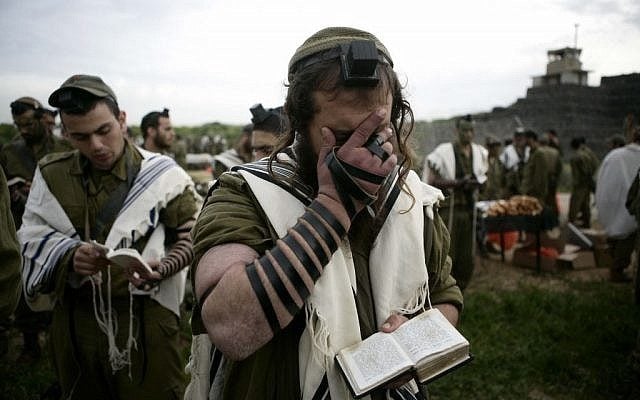Religious high-ranking officers have been passed up for promotion on the backdrop of an ongoing cultural war playing out within the IDF.
By: Mati Wagner, World Israel News
Since the establishment of the State of Israel there has been controversy over the place of religion in a state defining itself as both Jewish and democratic.
Within the ranks of the IDF this controversy has reached new heights as an overwhelmingly secular old guard of IDF commanders confronts increasingly higher numbers of religious men who are aspiring to reach senior officer positions.
According to an Army Radio report based on IDF data, a full 40% of officer cadet school graduates are Orthodox men — overwhelmingly of the religious Zionist persuasion — and half of all IDF commanders of ground forces at the brigade level are religious men.
The higher proportion of religious combat officers is undoubtedly connected to their educational background. Secular Israelis tend to be made up of ideologically diverse groups, including those opposing Israel’s continued presence in Judea and Samaria, where much of IDF combat service is focused. In contrast, religious Zionist Israelis tend to be more rightwing in their political outlook, with fewer, if any, doubts about performing service in and around Palestinian population centers.
Yet, inexplicably, while religious officers are over-represented at the lower levels of command, at the division level of command, where strategic, not just tactical, military decisions are made, there are no religious commanders. Only one religious commander is in the IDF general staff, and he is (Brig.-Gen.) Eliezer Toledano, the military secretary of Prime Minister Benjamin Netanyahu.
A glass ceiling for kippa-wearing officers?
Religious figures both within and outside of the IDF are talking of a “glass ceiling” against kippa-wearing officers.
Probably the most divisive issue facing the IDF is the integration of women, including many religious Zionist women, into increasingly diverse positions, including combat.
IDF Chief-of-Staff Gadi Eisenkot’s pursuit of increasing female integration has put him at odds with the religious Zionist rabbinic leadership, which enthusiastically encourages young religious men to excel in IDF service and teaches that this service is a religious duty.
This same rabbinic leadership sees Eisenkot’s policy of integration of women as a spiritual danger.
The battle between the rabbis and the secular IDF generals came to a head earlier this year when Rabbi Shmuel Eliyahu called for the ousting of Eisenkot because of his gender integration policy.
Another point of contention is IDF combat ethos. The case of (Brig.-Gen.) Ofer Winter, the famed commander of the Givati Brigade during the 2014 Operation Protective Edge in Gaza, illustrates how a religious framing of Israel’s wars with its enemies can clash with a more secular approach preferred by the IDF’s old guard.
During the battle in Gaza, for which Winter’s soldiers were later awarded more decorations of honor than any other brigade, the religious commander sent a communique to his subordinate officers in which he described the operation as a religious war against a “blasphemous” foe.
“History has chosen us to spearhead the fighting (against) the terrorist ‘Gazan’ enemy which abuses, blasphemes and curses the God of Israel’s (defense) forces,” he wrote.
Winter is among the senior officers of brigade level who were passed over for promotion.
Is it a coincidence that religious IDF commanders like Winter, whose outstanding combat abilities are undeniable, were denied promotion to the crucial division level of command? Or were Winter and other religious commanders like him the casualties of an internal cultural battle being waged in the IDF?





